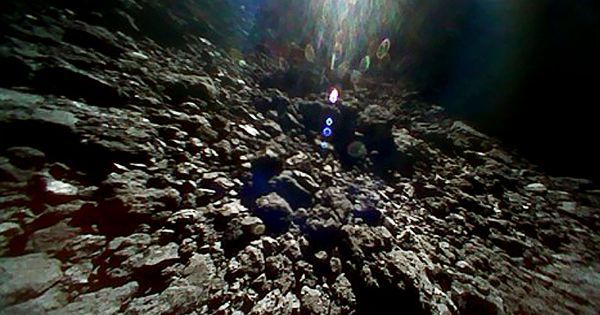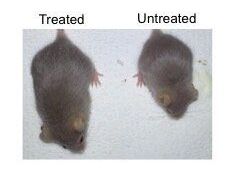More and more security holes are appearing in cryptocurrency and smart contract platforms, and some are fundamental to the way they were built.





A newly discovered species of lichen from Ecuador that contains both tryptamine and psilocybin has recently been discovered, dispelling the belief that the infamous ‘magic mushrooms’ are the only plant species containing this hallucinogenic compound.
Lichens are of particular interest to biologists because of their symbiotic relationship between algae and fungi. The fungus creates the network that sustains, hydrates, and protects the algae, which in turn generates the sugars necessary to feed it through photosynthesis. While they both exhibit plant-like characteristics, neither are actually plants — they are composite organisms. This makes the psychedelic lichen even more intriguing.
Scientists have been speculating about this particular lichen for some time. Rigorous testing is needed before researchers can claim anything as fact, however, making anecdotal evidence simply insufficient. And so despite reports from a local tribe about its hallucinogenic qualities, researchers could not positively affirm the lichen to be so, although psilocybin is known to be a psychedelic compound.

A swarm of 150 drones buzzed over Maroon 5 singer Adam Levine’s head during this year’s Super Bowl half time show, spelling out the words “One Love.”
It was a dazzling display of drone technology — and military developers in the United States and United Kingdom are increasingly interested in using something similar, but with a very different goal in mind: to surround enemy aircraft, confusing them and forcing them out of the sky.

LA JOLLA—(February 18, 2019) Aging is a leading risk factor for a number of debilitating conditions, including heart disease, cancer and Alzheimer’s disease, to name a few. This makes the need for anti-aging therapies all the more urgent. Now, Salk Institute researchers have developed a new gene therapy to help decelerate the aging process.
The findings, published on February 18, 2019 in the journal Nature Medicine, highlight a novel CRISPR/Cas9 genome-editing therapy that can suppress the accelerated aging observed in mice with Hutchinson-Gilford progeria syndrome, a rare genetic disorder that also afflicts humans. This treatment provides important insight into the molecular pathways involved in accelerated aging, as well as how to reduce toxic proteins via gene therapy.
“Aging is a complex process in which cells start to lose their functionality, so it is critical for us to find effective ways to study the molecular drivers of aging,” says Juan Carlos Izpisua Belmonte, a professor in Salk’s Gene Expression Laboratory and senior author of the paper. “Progeria is an ideal aging model because it allows us to devise an intervention, refine it and test it again quickly.”

There are 1.4 billion insects for each one of us. Though you often need a microscope to see them, insects are “the lever pullers of the world,” says David MacNeal, author of Bugged. They do everything from feeding us to cleaning up waste to generating $57 billion for the U.S. economy alone.
Today, many species are faced with extinction. When National Geographic caught up with MacNeal in Los Angeles, he explained why this would be catastrophic for life on Earth and why a genetically engineered bee could save hives—and our food supply—worldwide.
This is Part 1 of a 5-part series by USTP’s Foreign Ambassador in Nigeria, Chogwu Abdul, as he explores the thought-provoking intricacies of James Hughes’ “Problems of Transhumanism.”
Become a member of the U.S. Transhumanist Party / Transhuman Party for free, no matter where you reside: https://transhumanist-party.org/membership/
Ojochogwu Abdul
Introduction
In 2010, James Hughes, Executive Director of the Institute for Ethics and Emerging Technologies (IEET), having then just stepped down from the Board of Directors of the World Transhumanist Association (presently known as Humanity+), took up an interesting challenge during the Spring of that year to reflect on the current state of transhumanist thought and determine what the questions were that the transhumanist movement needed to answer in order to move forward. Introducing a series of articles with which he hoped to navigate through a number of heady ideas and issues concerning transhumanism, Hughes opens by posing: “What are the current unresolved issues in transhumanist thought? Which of these issues are peculiar to transhumanist philosophy and the transhumanist movement, and which are more actually general problems of Enlightenment thought?” Further, he queried, “Which of these are simply inevitable differences of opinion among the more or less like-minded, and which need a decisive resolution to avoid tragic errors of the past?”
